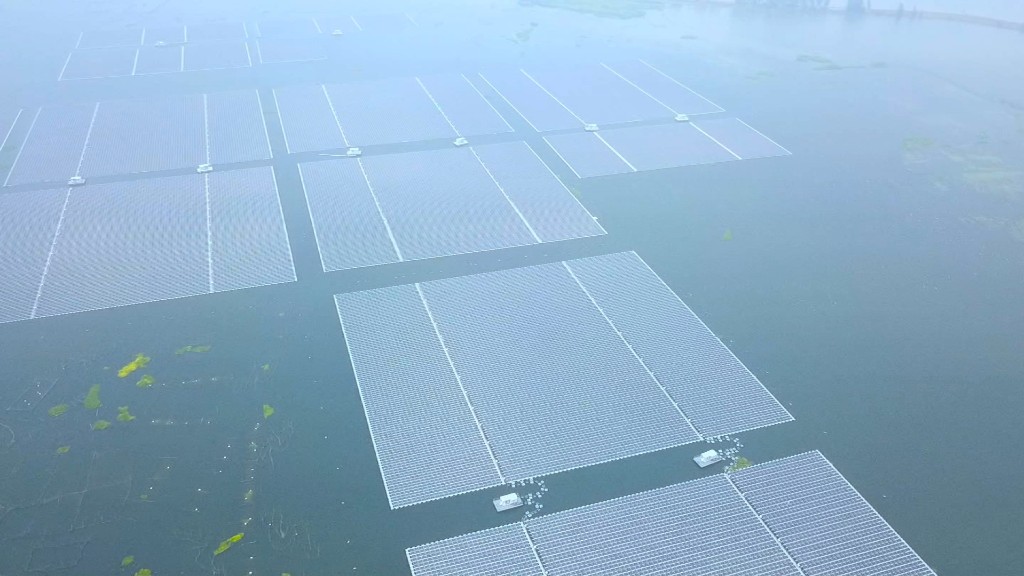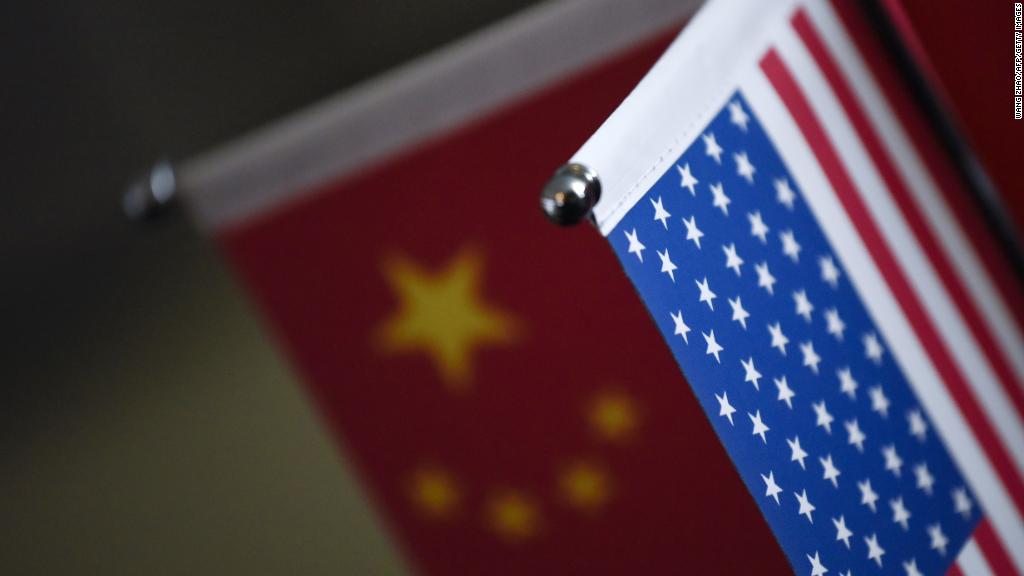
President Trump has a chance to hurt China on trade this month -- but he could end up hurting U.S. jobs, too.
Trump is set to decide before the end of January whether to slap punishing tariffs on foreign imports of solar panels, most of which come from China.
The U.S. president has consistently talked tough when it comes to trade, particularly with regard to China.
Related: Trump and China: 2018 could get nasty
However, much of the U.S. solar industry is hoping Trump will hold fire on this issue, as he has on others. Far from protecting American companies, the decision could kill tens of thousands of U.S. jobs, according to a major trade group.
"The proposed tariffs are a direct attack on American workers and the booming solar industry in this country," said David Bywater, CEO of top renewable energy firm Vivint Solar (VSLR).
How did we get here?
The U.S. is one of the world's biggest markets for solar energy and pioneered its key technologies.
In recent years, experts say that China has lent support to its own solar manufacturers via cheap loans and subsidies. That's driven down costs and led to a flood of cheap solar panels into markets like the U.S. and Europe.
"Some U.S.-based solar manufacturers are unable to compete with the inexpensive imports," said Edward Barbier, an economics professor at the University of Colorado.
That prompted the Obama administration to put tariffs on some Chinese solar imports five years ago, and more in 2014.
Related: Trump's top trade issues: Where they stand
They haven't had much impact. Almost 90% of solar installations in the U.S. still use imported panels, mostly from Chinese firms, according to consultant Greentech Media.
The Chinese imports still work out cheaper despite the trade barriers already in place, Barbier said.
What's going on now?
The dispute has now bubbled to the surface again.
Two U.S. solar panel makers filed a complaint with the U.S. International Trade Commission last year, arguing cheap imports from China had decimated their business.
The commission is now recommending tariffs of up to 35% for nearly all solar panel imports into the U.S. Trump has until January 26 to make a decision on whether to impose them.
Related: New Pacific trade deal could leave U.S. playing catchup
The new tariffs would be much broader than existing ones. They would apply to more components than the Obama-era tariffs and cover imports from all countries. But experts say the main target is clearly China.
The U.S. alleged last year that Chinese companies are opening manufacturing facilities in other countries in order to get around trade barriers.

What does that mean for the U.S.?
New tariffs would be deeply unpopular with much of the U.S. solar energy industry.
American companies have largely ditched the manufacturing of panels to focus on installing them and other related services. The vast majority of firms use panels imported from other countries, mainly China.
"These irrational tariffs would undermine America's energy independence, our burgeoning solar industry and competition," said William Berger, CEO of Texas-based Sunnova, one of the three biggest U.S. solar companies.
Job growth in the industry is 17 times faster than in the overall U.S. economy, according to a report last year by the International Renewable Energy Agency.
Related: Why Trump's coal promises are doomed
The Solar Energy Industries Association, a big trade body, estimates that raising tariffs could effectively double the cost of panels and put as many as 90,000 American jobs at risk.
About 40,000 people are still working in solar panel manufacturing in the U.S. In that part of the industry, companies favor more tariffs.
Juergen Stein, CEO of SolarWorld Americas, one of the two companies that filed the complaint with the U.S. trade commission, said new tariffs would encourage the industry to invest more in manufacturing and innovation.
Stein disputed the industry association's claim that the penalties would cause thousands of job losses, saying his company would "rehire hundreds of workers immediately" if Trump raises tariffs.
CNNMoney wasn't able to reach Suniva, the other U.S. manufacturer that filed the trade complaint, for comment. Suniva filed for bankruptcy protection last April, just before launching the case.
"A robust tariff will allow Suniva to restart its factories and rehire employees," Suniva spokesman Mark Paustenbach said, according to Reuters.
What happens next?
Experts predict Trump will go ahead with higher tariffs on solar imports.
The president has repeatedly voiced frustration with the huge U.S. trade deficit with China, skepticism about climate change and fondness for fossil fuel industries.
"Trump does not really care much for the solar industry," said Jonas Nahm, an assistant professor of energy at John Hopkins University. "This is a useful way for him to stick it to China that will be popular with his base."
Related: China is crushing the U.S. in renewable energy
The move could provoke reprisals from China against U.S. business interests, risking a series of tit-for-tat measures by both sides.
And Chinese solar panel manufacturers may not even care as much as they would have done in the past. Their sales inside China are growing, according to Nahm, and they're also rapidly expanding their international customer base.
"They would be able to find alternative markets if the U.S. becomes unattractive," he said.


